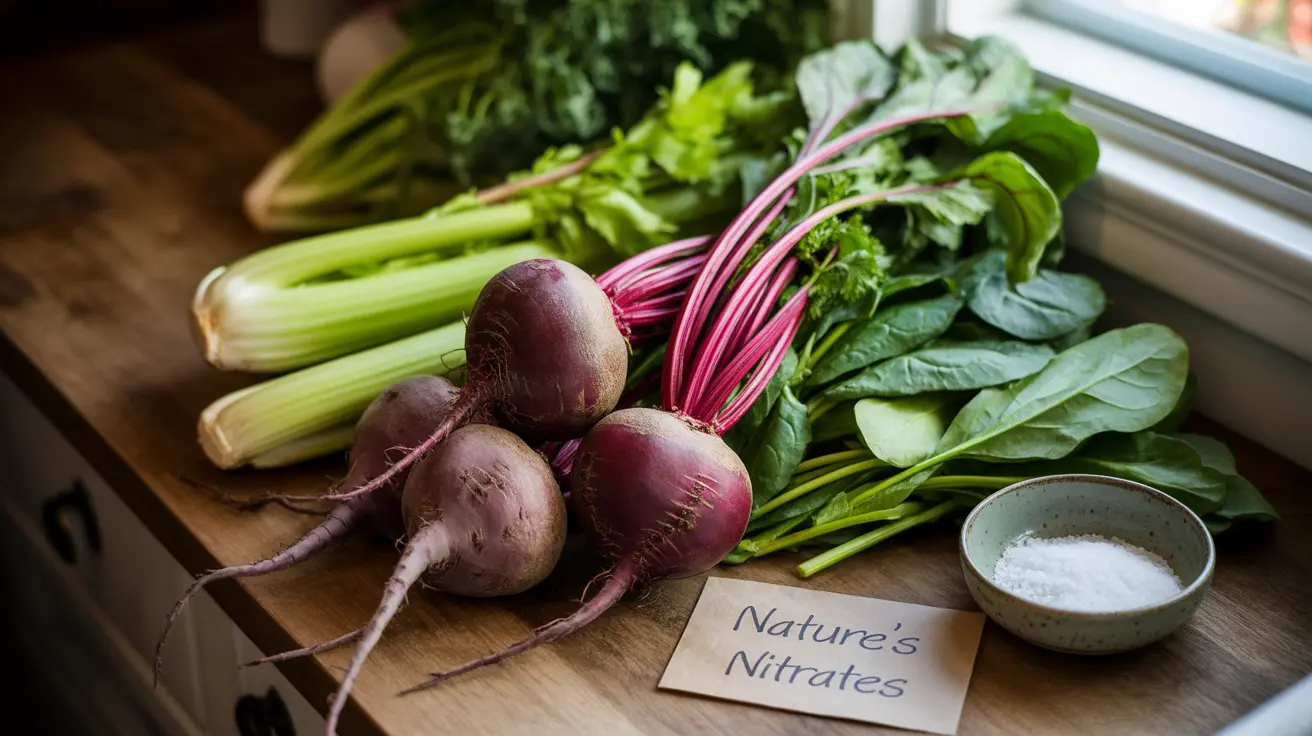Nitrates and nitrites are compounds found naturally in many foods and are also used as preservatives in processed meats. While these substances have sparked considerable debate in the health community, understanding their effects requires a closer look at their sources and how they interact with our bodies.
The truth about nitrates is more nuanced than a simple "good" or "bad" classification. Their health impact largely depends on their source and how they're consumed, making it essential to understand the difference between natural and artificial sources.
Natural vs. Artificial Nitrates: Understanding the Difference
Natural nitrates are predominantly found in vegetables like beetroot, celery, and leafy greens. These plant-based nitrates come packaged with beneficial nutrients and antioxidants that help your body process them safely.
Artificial nitrates and nitrites, commonly added to processed meats as preservatives, behave differently in your body. These compounds are more likely to form potentially harmful substances, especially when exposed to high temperatures during cooking.
The Benefits of Natural Nitrates
Naturally occurring nitrates from vegetables offer several health advantages:
- Improved blood flow and circulation
- Enhanced athletic performance
- Potential blood pressure regulation
- Better cognitive function
- Increased energy efficiency in cells
Health Concerns with Processed Meat Nitrates
The concerns about nitrates primarily center around their use in processed meats:
- Formation of potentially harmful compounds during cooking
- Increased risk of certain cancers when consumed in processed meats
- Possible links to metabolic issues
- Higher cardiovascular disease risk associated with processed meat consumption
Temperature and Cooking Considerations
The way you prepare nitrate-containing foods can significantly impact their effects on your health. High-temperature cooking of processed meats containing nitrates can lead to the formation of potentially harmful compounds called nitrosamines.
Safe Cooking Practices
To minimize potential risks:
- Avoid charring or burning processed meats
- Use lower cooking temperatures when possible
- Choose fresh, unprocessed meats more often
- Include plenty of vitamin C-rich foods in your meals
Making Healthier Choices
To optimize your nitrate intake while minimizing potential risks:
- Choose fresh, whole foods over processed options
- Consume nitrate-rich vegetables regularly
- Limit processed meat consumption
- Read food labels carefully
- Consider nitrate-free alternatives when available
Frequently Asked Questions
Are nitrates from vegetables good or bad for your health?
Nitrates from vegetables are generally beneficial for health. They come with natural compounds and antioxidants that help prevent the formation of harmful substances in your body and can improve cardiovascular health.
What health risks are associated with eating processed meats containing nitrates?
Processed meats containing nitrates have been linked to increased risks of certain cancers, particularly colorectal cancer, and cardiovascular disease. The risks are primarily associated with the way these nitrates interact with proteins in meat and how they're processed at high temperatures.
How do nitrates and nitrites affect blood pressure and heart health?
Natural nitrates can actually benefit heart health by helping to lower blood pressure and improve blood flow. However, nitrates from processed meats may have the opposite effect when combined with other compounds in these foods.
Can cooking nitrate-rich foods at high temperatures increase cancer risk?
Yes, cooking nitrate-containing processed meats at high temperatures can increase cancer risk by promoting the formation of nitrosamines, potentially carcinogenic compounds. This risk is primarily associated with processed meats rather than vegetables.
How can I reduce the harmful effects of nitrates and nitrites in my diet?
You can reduce potential harmful effects by limiting processed meat consumption, choosing fresh foods when possible, eating plenty of vitamin C-rich foods, and focusing on natural nitrate sources like vegetables. Additionally, using lower cooking temperatures and avoiding charring meat can help minimize risks.




